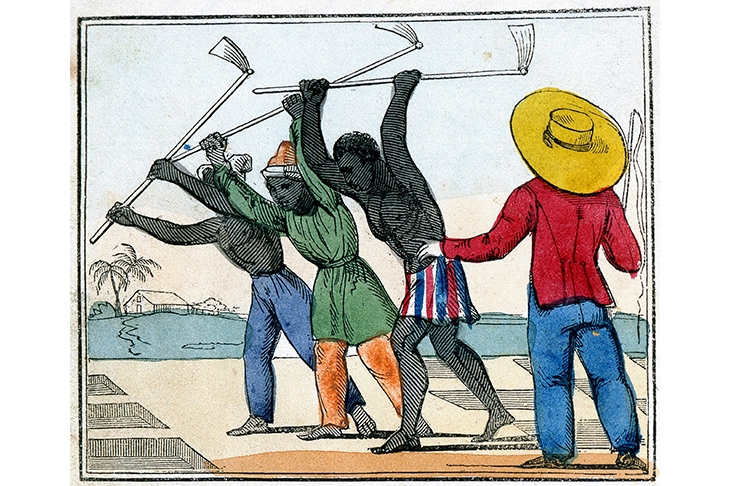Wrestling with the history of the British Empire is the unfinished and unfinishable project of our history. Time’s Monster takes a meta-approach to this. Its author Priya Satia has read widely, and has written essentially a cultural history of the Empire from the early modern period to today, of the way Britain’s colonial expansion has been interwoven with the culture. Many of the connections she draws are intriguing and her narrative is nuanced enough to be sympathetic to both pro- and anti-imperial arguments past and present.
But overlaying this is a discussion of how historians themselves have shaped the perception of the Empire, acting as boosters, or at least as apologists (such as John Robert Seeley, with his claim that it developed in a ‘fit of absence of mind’). Of course, academics were often beneficiaries of empire themselves in various ways — universities received bequests from those whose wealth came on the back of slavery and exploitation (an issue some institutions in the UK and the US are having to address today), while British professors gladly took posts in the universities that sprung up across the dominions throughout the 19th century.
A frock-coated statue torn from a plinth won’t help the indigenous peoples of Canada and Australia
In Padraic X. Scanlan we have a writer explicitly claiming to reassess the history of the British Empire — specifically the role of slavery within it. He is an economic historian, so is alive to the ways in which slavery was integral to Britain and its empire becoming an economic powerhouse, much of it driven by the labour of unfree bodies. But he appears to think this is little known or addressed. I don’t know in which circles he moves, but it’s not a revelation to most people that Britain profited from the slave trade, despite Scanlan’s suggestion that such claims are met with a ‘chorus of rebuttals and denial’. Important works on the role of slavery in empire by scholars including Sasha Turner, Natasha Lightfoot and Olivette Otele would belie this characterisation of current historiography.
Nonetheless Scanlan writes about how the antislavery movement became its own political and economic force: a moralising stance for an empire which continued to profit from the global network of unfree labour. Britain’s mills, for example, still processed cotton from the American South long after the slave trade in its colonies was abolished, while unfree labour in the form of coolies and blackbirding in the Pacific also continued.
Scanlan shares with Satia the view that liberal apologists for the British Empire were able to lean on the argument of ‘If not us, who?’ — suggesting that Britain was a ‘better’ conqueror than other European powers — and that the abolitionist movement assuaged imperial guilt. At worst, the pro-Empire liberals took the line that Britain’s benevolent rule was saving some of the world’s poor benighted peoples from themselves.
Do such views still linger? Satia cites a survey suggesting that 44 per cent of Britons have a positive view of the Empire — a statistic she obviously finds troubling. But I’m not sure this proves very much. Other surveys show that 20 per cent of people in Britain think the Moon landing was fake and a similar proportion believe Winston Churchill was a fictional character. So historians may be over-egging their own importance if they weigh too heavily the supposed responses of Joe Public to events of the past.
There’s been much work done lately to revise the public’s views of the British Empire, particularly its darker elements. Books are pumped out every year to consider anew various facets of Britain’s imperial narrative. And we’ve recently seen the cruel side of empire addressed in a more practical sense: the removal of statues which appear to represent racist views of the past and the renaming of buildings which commemorated those involved in the slave trade.
I wonder how much this performative ‘justice’ will actually help those who suffer today as a result of the legacies of empire. (I’m thinking of the indigenous peoples of Canada and Australia, who lag well behind others in access to health care and education, to a degree that should shame wealthy nations.) A frock-coated statue being torn from a plinth doesn’t change their situation. Likewise, in academia there is much talk about the importance of ‘decolonising the curriculum’. I strongly suspect that for indigenous groups, the ‘decolonisation’ they want to hear about is one in which they get their land back — not one where some books are added to, or removed from, a reading list.
Each generation of scholars explores the British Empire in different ways, and this ‘monster of time’ is unlikely to be defeated. To paraphrase William Faulkner: the Empire is never dead, it’s not even past.





Comments